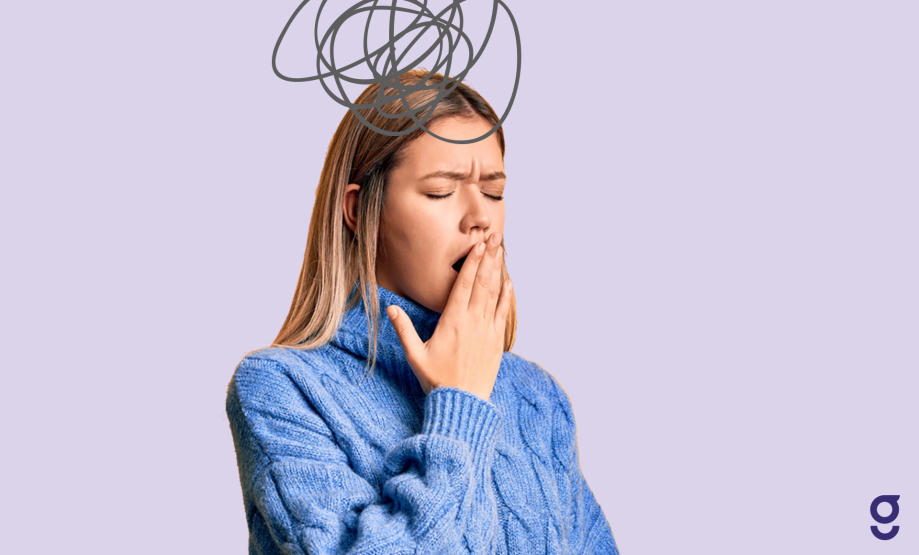Sleep, Stress, And COVID-19: Does Stress Affect Sleep?
Stress - whether from work, family life, news about COVID-19 - makes quality sleep hard.
Stress / Sleep Cycle
Once stress takes hold, it can create a cycle of stress and poor sleep or insomnia that is hard to break. It can go like this:
Stress makes falling asleep and staying asleep harder.
One wakes up tired and there are more stressful events occur - related to work, home, family, or COVID-19.
That additional stress can carry through to bedtime.
Then, poor sleep continues.
The cycle repeats itself.
Impact On The Body
This matters because missing sleep has lasting physical impacts, in addition to increasing anxiety, moodiness, and stress. The CDC reports that 35% of adults get less than 7 hours of sleep per night versus the recommended 7 hours or more.
Less than 7 hours may not seem remarkable, but over time, that lost sleep weakens the body. People who habitually get less than 7 hours of sleep are at greater risk for heart disease, weight gain, diabetes, stroke, depression, arthritis, and kidney disease.
Recognizing Stress Before Bed
Medically speaking, stress means an event or events that create acute or chronic physiological and psychological responses in the body, as defined by the NIH.
A physiological response one may recognize is increased heart rate or blood pressure. A psychological response could be anxiousness or extreme sensitivity. People following news about COVID-19 could experience just such symptoms.
This stress can then lead to cognitive or physiological arousal, which could be recognized as worry or racing mind. Both of these make falling asleep and staying asleep harder.
Tips To Sleep Without Stress And How They Help
Instead of taking the stress to bed and hoping that it disappears with sleep or eventually fades enough to allow sleep, there are various methods one can use.
CBT-I or Cognitive Behavioral Treatment for Insomnia. The American College of Physicians identified CBT-I as the first-line treatment for insomnia. This is a robust, multi-modal behavioral therapy targeted specifically to insomnia. It is a mix of cognitive therapy, behavioral changes such as stimulus management, and educational tools like sleep hygiene. CBT-I improves speed of falling asleep, sleep efficiency, and sleep quality. This evidence holds across multiple CBT-I delivery methods, including in-person therapy, online-based models, or self-directed books.
Sleep Diary. This is a tool to record details about sleep experiences as well as daytime activities that affect sleep. When done over time, one can identify patterns. An example would be recording when during the day one absorbed COVID-19 news and its effect on the body with sleep trends over that night and following nights.
Journaling. These are writing exercises and prompts that focus the mind on thoughts and feelings to help lessen stress and anxiety. It can be practiced as expressive writing, sometimes on a traumatic event, or as positive writing, to improve mood. Some studies have shown that designated worry time or writing a worry list can reduce sleep issues.
Breathing Exercises For Falling Asleep. These are deep breathing exercises for individuals who have trouble falling asleep due to an overactive mind or stress. Effective exercises engage all 6 lobes of the lungs, infuse more oxygen into the body, and activate the parasympathetic nervous system, relieving stress, encouraging a more calm and relaxed mind, and getting the body ready for sleep.
Progressive Muscle Relaxation. This is a technique to lessen muscle tension by periodic tensing and then releasing of muscles. This has been a method to promote relaxation since developed in the 1920s by a US doctor, Edmund Jacobsen. When done effectively, this helps to decrease stress, anxiety, and muscle tension.
The benefit of the above approaches is that they are targeted directly at stress and sleep, something of relevance during COVID-19. Additionally, those approaches avoid possible side effects from prescription sleep medicines like difficulty driving.
There are times when other methods of sleep support can be helpful, including ones that address more than just stress. Examples of other tools include over-the-counter medications, supplements like melatonin, or active coaching from sleep experts.
What To Do
Typically, treatments work best when part of an integrative program that coordinates each sleep support method collectively. More information on treatment types and troubled sleep diagnoses can be found here.
Take the Goodpath Sleep Quiz to get access to a personalized, integrative sleep program that leverages the above techniques.
For additional information about the effect that stress plays on the body and how to address it, see more resources at goodpath.com/learn.
